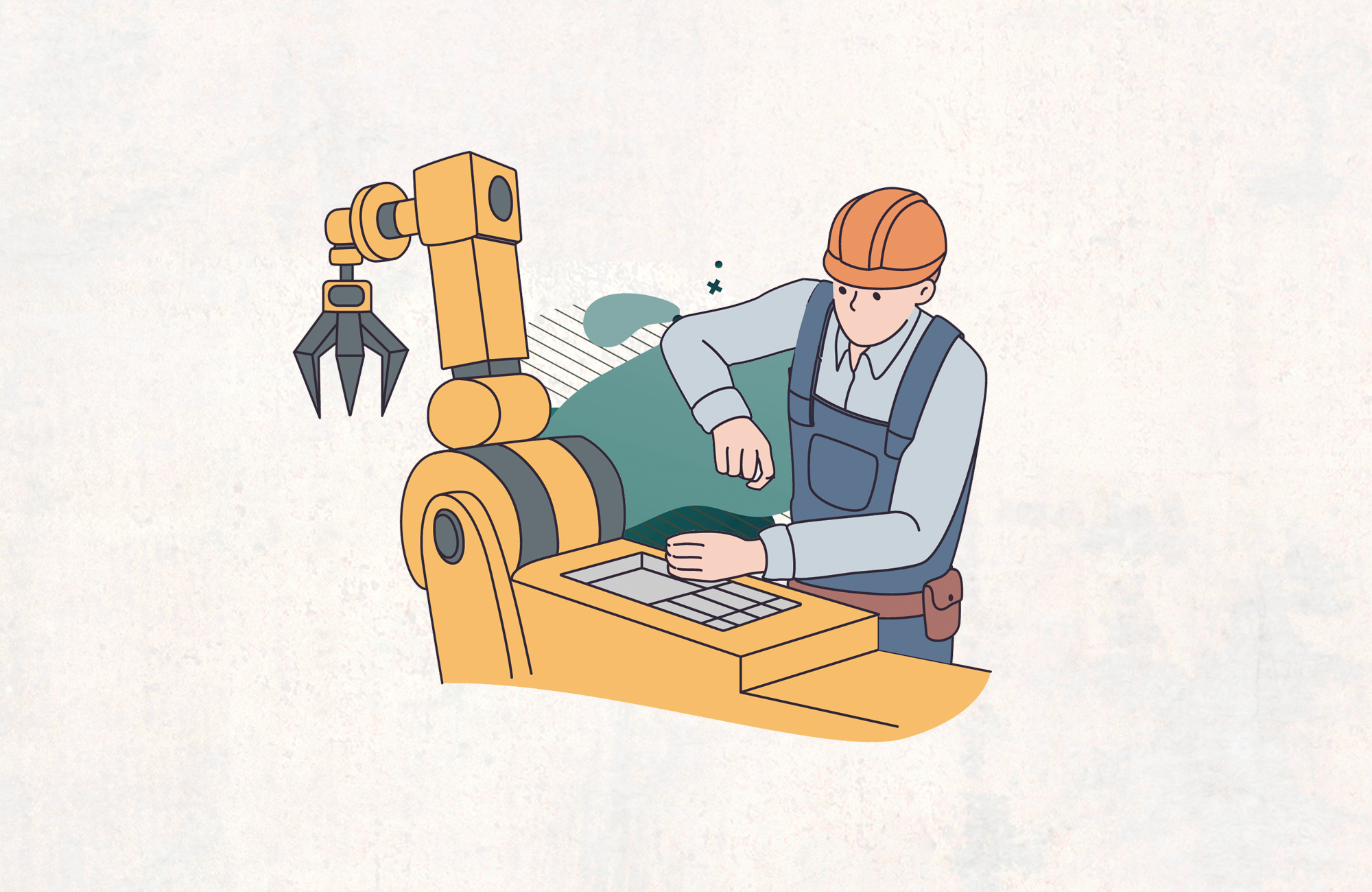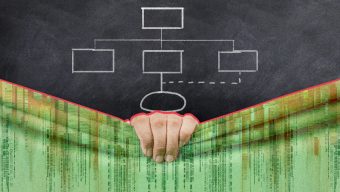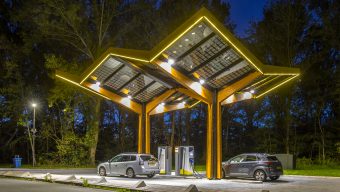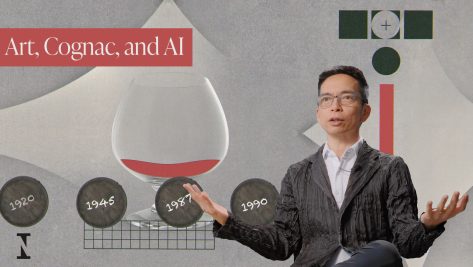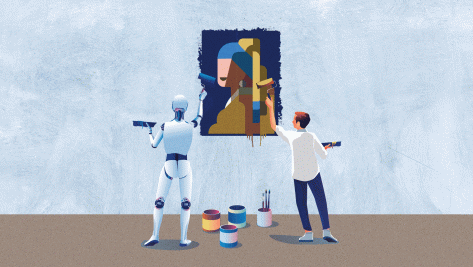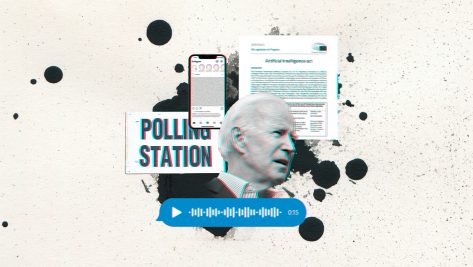Manufacturing is an industry that will be fully digital in the coming years, while simultaneously approaching sustainability. There are already industrial machines connected to the internet by design. In addition, new sensors have been added to old machines so that we can better understand their performance and health. Industrial IoT (IIoT), smart factories, and smart manufacturing will eventually become a standard of the industry.
What all this means is that professionals in manufacturing will soon need to deal with huge amounts of data that will empower them to make better decisions. In this fully connected industrial landscape, we can also add robots (especially collaborative robots) to the list, as well as 3d printing, VR-AR, and the use of artificial intelligence across all use cases and machines. In fact, the World Economic Forum predicted that by 2030, 50% of jobs will be changed by automation – but only 5% eliminated.
These new advanced technologies and automation require new skills for engineers and business professionals in the industrial sector, such as manufacturing, oil and gas, and pharmaceuticals. While they face their unique challenges and opportunities, both engineers and business professionals are impacted by how the climate crisis will drive change and a re-think of the future of work. In both cases, the future demands digital and sustainability skills combined with an understanding of change management.
Future of Work for Engineers: #Digitalskills – #Storytelling – #Sustainability – #Learnandbecurious
1. Digital skills
Engineers will be expected to have, at least, a basic, holistic knowledge of digital technologies, such as software, big data, electronics, connectivity, and, importantly, how they all come together. An understanding of technologies like VR-AR, AI, Digital Twins, and anything related to IoT data and visualization will also be a basic requirement. For example, machines in factories or products produced in a factory are often connected and include software (Machine As A Service, leveraging IoT-AI), which means that engineers must understand smart machines and be comfortable using VR-AR or Digital Twins to monitor them (or at least dashboards on a screen). Furthermore, a key skill for productivity and harmony on the shop floor will be the ability to work with different types of robots and to coach others on how to do so. Already traditional mechanical manufacturers are racing to become software companies, and changing their business model and services – what they need from their engineers is therefore changing too.
2. Storytelling
The amount of data that engineers and other technical staff will encounter on a daily basis is set to increase exponentially. Thus, the ability to package this information into a compelling and understandable narrative will be imperative. This storytelling skill, based on data insights, is very important so that engineers can drive action within the organization by adequately communicating their findings and ideas. Beautiful dashboards and nice graphs will be (in fact already are) available, but how that information is translated will be what determines success.
3. Sustainability Mindset
Sustainability is already top of mind for CEOs, as it is for many workers today (particularly younger employees.) This will only increase as our climate problems worsen and the pressure from governments, investors, and consumers becomes more serious. Thus, engineers will need to consider – in every decision they make – how they can make their products and processes more sustainable, use fewer resources, and produce less waste and harm. From production and supply chain to packaging and product lifetime, engineers must understand the ecological and social impact of their decisions.
A growth mindset helps employees and entrepreneurs repurpose themselves.
4. Business Mindset
In a few years, the technology stack will be easier to use than it is today. This means that engineers will need to have a business mindset to understand how the combination of technologies can solve problems, what it means for users, and how it can generate value without harming our planet. The availability of exciting technologies like IoT, robots, 5G, 3D printers, VR-AR, drones, etc. will be a temptation for tech-savvy engineers to dive into, but it is a business mindset that will guide them to their most important ideas.
5. Learn and Be Curious
A growth mindset is essential for continuous learning. It’s fair to assume that new professions and requirements will arise every few years and that companies will frequently repurpose their staff. Engineers will need to be curious about new technologies and new techniques so that they can continually modernize the way they deliver their responsibilities. Amazon’s leadership principle of Learn and Be Curious is an excellent example of how organizations and professionals can put curiosity front and center in an effort to identify and adjust to new opportunities and challenges. In addition, a growth mindset helps employees and entrepreneurs repurpose themselves and proactively create roles that match their interests, whether that is with their current employer or at another organization. This helps professionals not only remain relevant but do work that interests them and provides a sense of purpose.
Future of Work for Business Professionals in Industrial Sectors: #Digitalawareness – #Industryknowledge – #Sustainability – #Changemanagement
1. Digital Awareness
It doesn’t matter the department – whether it be marketing or sales, supply chain or finance – modern business professionals will need digital awareness. This entails having a firm grasp on all digital technologies (e.g. IoT, AI, Edge, VR-AR, 3d printing, Digital Twins), the potential use cases of these technologies in a specific sector, the potential challenges, and an understanding of how to adopt these technologies and use them in business. These topics will no longer be the sole responsibility of the technical departments of the organization. Business leaders must own the agenda and work alongside their technical peers in order to make decisions. For example, if a manufacturer decides to launch a new smart connected machine (car, machinery, power tools, etc.), the sales and marketing teams must understand the value of the data from the machines, be comfortable with explaining the benefits and challenges, and how the technology can improve the processes and enable new services and business models.
2. Industry Knowledge
Many companies are already verticalizing their product offerings, making sales teams and marketing messaging as relevant as possible for specific sectors. Despite the fact that skills are transferable from one sector to another, future companies will value industry specialists more than they do today. Digital transformation, combined with regulations, climate change, and competition from across the value chain may in the future require very deep industry expertise in order to deal with all the complexity of each sector (or even better sub-sector like automotive, chemicals, FMCG, pharma, etc.). Again, upskilling and keeping up with the trends of the industry will become increasingly important. Business professionals will also need to be prepared to work across industries – the borders have already started to merge, for example between energy and automotive, insurance and smart machinery. This means that while you are specialized in one industry, it’s important to keep an eye on what’s happening in other industries as they may directly affect yours or simply provide an opportunity to encounter new best practices.
Digital transformation and sustainability transformation will become one.
3. Sustainability Mindset
In a similar vein to what has been prescribed for engineers, modern business professionals will need to find ways to reduce the impact of their decisions on our planet and society. Net zero, UN ESG, circular economy, Industry 5.0, and other green laws and trends will need to be constantly addressed by business leaders – and it will not be about doing less bad but about doing more good for our planet and society, all while keeping a strong commercial performance. For example, when product managers and marketers launch a new product, they will need to align with the engineers in the factory about the resources used in production and for consumption, the product lifetime, and even the product’s end and how it can be repurposed or recycled. The use of advanced technologies and having a sustainability mindset will soon be a must. Products as a Service are great examples of this model where a manufacturer is responsible in ensuring (using IoT and AI) limited waste during production, extending the lifetime of the product, and, in the end, having full ownership to recycle it or repurpose it. Needless to say, a strong sustainability mindset will help business leaders attract and retain good talent in the organization as well as win new customers (B2C, B2B) who are becoming more sustainability-savvy year by year.
4. Change Management
Industrial companies will go through significant changes as they become more sustainable and competitive. Digital transformation and sustainability transformation will become one – and this will require changes across processes, culture, organization structure, and even changes in suppliers and types of customers. Modern business professionals must learn to manage and drive change in a programmatic way and with empathy. Deploying new technologies and promoting green initiatives will simply not be enough (as has already been shown in the last few years). Taking everyone on the journey of change, with good communication, empathy, training, and re-design of processes and tasks will allow companies to go through a ‘smoother’ transition. Change management also has another meaning. The changes in market, organization, life, and industry, are opportunities for individuals to grow and succeed. In the coming years, managing these changes will enable organizations to experiment and find the best fit for the organization, their employees, and their customer in a digital and sustainable world. Thus, professionals will need to be ready for change, to learn new things, and be open to new roles (re-purposing) that might not even exist at present.
Overall, the future of work requires digital and sustainability knowledge and skills. They are not separate, however, but merged into one. This new mindset and knowledge is what will prepare engineers and business professionals for what comes. It will make them future fit.
© IE Insights.



